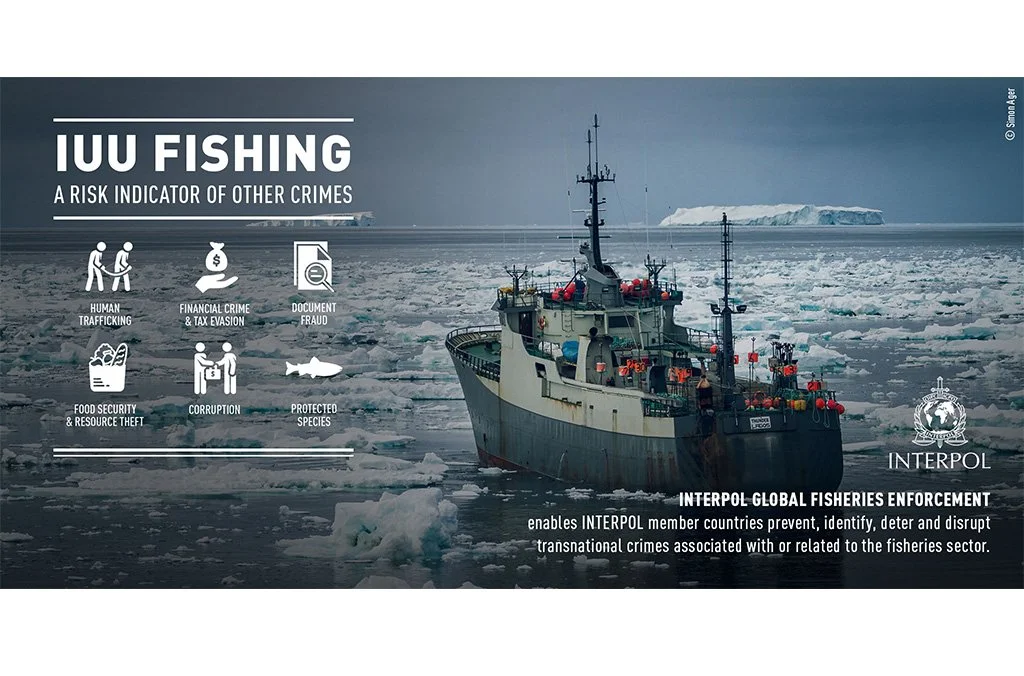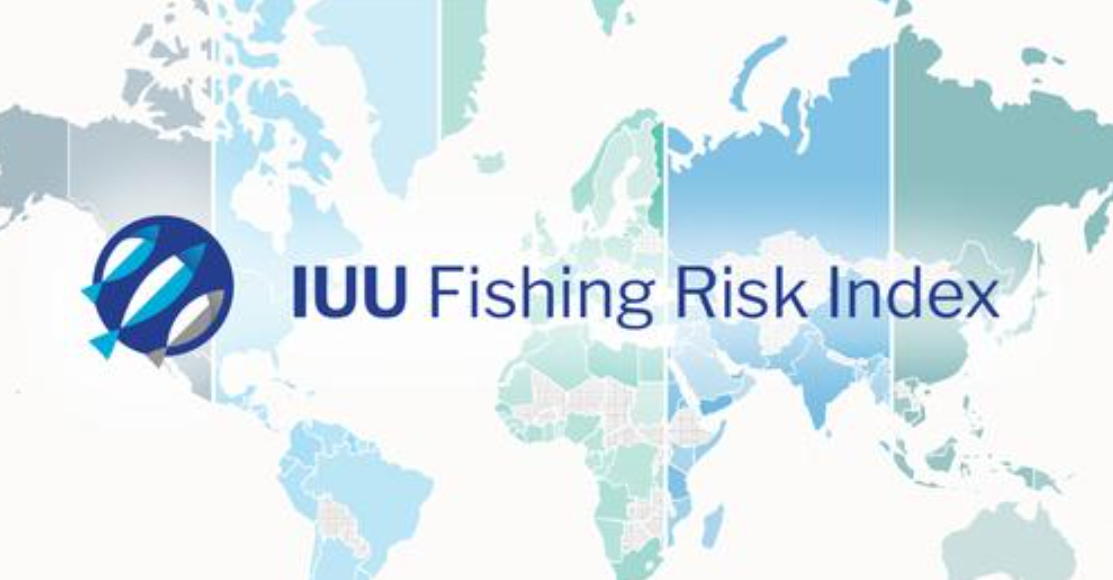PURPOSE: The General Assembly of the United Nations declared 5 June the International Day for the Fight against IUU Fishing at its seventy-second session in November 2017. The date reflects the day when the Port State Measures Agreement officially entered into force as an international treaty. The entry into force of this agreement marks an historical event, as it is the first international legally-binding instrument specifically devoted to the fight against illegal, unreported and unregulated fishing. Beyond food and economic security and environmental impacts, new geopolitical and conflict threats associated with IUU fishing have emerged. The purpose of this day is to draw attention to the threats posed by IUU fishing activities to the sustainable use of fisheries resources as well as to highlight the ongoing efforts to fight these activities.
FORUM: "Achieving sustainable fisheries is a commitment for states around the world." International Day for the fight against Illegal, Unreported and Unregulated (IUU) fishing 2025. On the occasion of the eighth observance, we are organizing a digital talk on how IUU fishing affects small-scale fishers and their communities, and how small-scale fishers can be stewards of the ocean against IUU fishing. Research shows that It is estimated that 1 in every 5 fish caught, comes from IUU fishing. When such fish ends up on our plates, we are unwitting accomplies in unsustainable, and often criminal practices, that are damaging our future well-being and the sustainability of our planet. The FAO Fisheries and Aquaculture has developed an international tool on the Global Record of Fishing Vessels, Refrigerated Transport Vessels and Supply Vessels to fight IUU fishing. IUU fishing undermines national and regional efforts to conserve and manage fish stocks and, as a consequence, inhibits progress towards achieving the goals of long-term sustainability and responsibility. Moreover, IUU fishing greatly disadvantages and discriminates against those fishers that act responsibly, honestly and in accordance with the terms of their fishing authorizations. If IUU fishers target vulnerable stocks that are subject to strict management controls or moratoria, efforts to rebuild those stocks to healthy levels will not be achieved, threatening marine biodiversity, food security for communities who rely on fisheries resources for protein and the livelihoods of those involved in the sector. Join us in a digital talk as we bring together different voices: a journalist together with a chef, a scholar, an artisanal fisher, and a technical officer, who explore both sides of the coin and look towards possible solutions for sustainable fishing. Follow the conversations with the hashtags: #IUUFishing, #5June, #FightIUUFishing, #SaveOurOcean.
EVENTS: On June 5th, from 15:00 to 16:00 CEST; to mark the International Day for the fight against Illegal, Unreported and Unregulated Fishing 2025, a webinar will held from the FAO Headquarter to address IUU fishing and related crimes along the fisheries value chain affecting ocean health, peace, and security. The Participants will learn the way to improve maritime security through information exchange, science and technology as the world depends on healthy oceans. The Food and Agriculture Organization of the United Nations provides different types of support to assist States improve their capacity to combat illegal, unreported and unregulated (IUU) fishing. Register to participate!
From April 21 to 25th was held the Fifth Meeting of the Parties to the PSMA in Manta, Ecuador.
From March 10th to March 14th was held the Fifth Meeting of the Technical Working Group on Information Exchange (TWG-IE) in Paris, France.
- On May 30th, 2025; Fisheries inspectors from Asia and the Pacific benefit from FAO training.
- On May 23th, 2025; PSMA and IUU fishing online course series launched - On May 20th 2025; FAO implemented the United Nations standard for fisheries information exchange - On May 9th 2025; Second port mission helps FAO continue supporting Madagascar in strengthening fisheries procedures - On April 30th 2025 ;Twenty legal professionals complete FAO course. - On April 30th, 2025; Parties to the PSMA agree on actions to be taken to further strengthen the implementation of the PSMA. - On April 24th, 2025; The Gambia moves one step closer to updating its fisheries laws after FAO support. - On April 21st, 2025; Fifth Meeting of the PSMA Parties opens in Ecuador. - On April 18th, 2025; States can now fulfil key PSMA information sharing requirements through a single tool: the GIES. - On April 17th, 2025; Seventeen legal professionals complete FAO course.
- On April 17th, 2025; FFA e-PSM becomes the second electronic system to automatically transfer data into PSMA GIES. - On April 16th, 2025; China becomes Party to the PSMA. - On April 16th, 2025; PSMA Global Capacity Development Programme information now online.
- On April 15th, 2025; FAO experts help Kenya start drafting additional legislation to better implement international instruments.
- On April 14th, 2025; FAO assists Guinea-Bissau in acceding to the PSMA
- On April 14th, 2025; Transshipment and landing declarations now available in PSMA GIES.
- On March 27th, 2025; FAO continues to support Madagascar in strengthening procedures to promote sustainable fisheries. - On March 18th, 2025; Saudi Arabia and Ukraine become Parties to the PSMA.
- On March 17th, 2025; Fifth meeting of the Technical Working Group on Information Exchange discussed the first year of operationalization of the PSMA GIES.
- On March 12th, 2025; Eighth meeting of the Global Record Working Group.
- On March 5th, 2025; New manual of procedures for fisheries inspections presented in Senegal.
- On February 10h, 2025; National PSMA awareness raising workshop held in India. - On January 31st, 2025 -Direct and secure communication channel among States now available through PSMA GIES
- On January 24th, 2025; IOTC e-PSM becomes the first electronic system to automatically transfer data into PSMA GIES - On January 17th, 2025 ;Interagency workshop on PSMA implementation held in Indonesia .
- On January 9th; Mexico seeks to align national platforms with FAO tools to combat IUU fishing.
To learn more explore the calendar of events and contact FAO at FAO-IUU@fao.org for more information.
PUBLICATIONS: The IUU Fishing Risk Index reports synthesize and analyse the Index scores for countries, regions and ocean basins for different types of state responsibilities (coastal, flag, port and general). Each report is available for each update/version of the Index. Read the latest report!
STATEMENTS: Commitments of the governments of Costa Rica, Japan, France and Papua New Guinea on the occasion of the International Day for the Fight against illegal, unreported and unregulated (IUU) fishing 2024.
PODCASTS: How to manage fish resources and ensure that these can be used sustainably while providing healthy food at reasonable prices? Listen to the audio-podcats!
CAMPAIGN MATERIALS: Sustainable Fishing starts with us. Act to stop illegal fishing. Get the campaign materials!
WHY WE CELEBRATE THE DAY?
IUU fishing undermines national and regional efforts to conserve and manage fish stocks and, as a consequence, inhibits progress towards achieving the goals of long-term sustainability and responsibility. Moreover, IUU fishing greatly disadvantages and discriminates against those fishers that act responsibly, honestly and in accordance with the terms of their fishing authorizations. If IUU fishers target vulnerable stocks that are subject to strict management controls or moratoria, efforts to rebuild those stocks to healthy levels will not be achieved, threatening marine biodiversity, food security for communities who rely on fisheries resources for protein and the livelihoods of those involved in the sector.
An international framework has been developing to address fisheries management since the adoption of UNCLOS in 1982, with an increasing number of fisheries management instruments beginning in the 1990s. This framework is comprised of both binding agreements and voluntary instruments which facilitate the management of fisheries at the global, regional and national level.
HOW TO GET INVOLED!
PARTNERSHIPS
Raise awareness about the alarming issues of fish stocks.
Connect with fishermen, artisanal fishing communities, and the whole small scale fishery sector.
Bring together information on capacity development projects to support States in combating IUU fishing.
Ensure effective implementation and enforcement of country’s revised laws.
Strengthen the effective implementation of international rules and management measures.
Increase the traceability of seafood products; and Prevent sales of IUU products.
Amend the fisheries law and strengthening legislation.
Create a legal framework for a gradual transition to commercial, responsible and sustainable fisheries.
Reduce the number of fishing boats operating illegally in other countries.
Downsizing the fishing fleet; and
Strengthen education and information so as to raise awareness among fishermen not to violate other countries’ waters
The International Day for the Fight against IUU Fishing is co-organized by the United Nations Convention of the Law of Sea (UNCLOS), the Division for Ocean Affairs and the Law of the Sea, the Food and Agricultural Organization (FAO), the Department of Fisheries and Aquaculture. With the collaboration of the International Commission for the Conservation of Atlantic Tunas (ICCAT), the Indian Ocean Tuna Commission (IOTC), the Western and Central Pacific Fisheries Commission (WCPFC), the Inter-American Tropical Tuna Commission (IATTC), the Commission for the Conservation of Southern Bluefin Tuna (CCSBT), the North-East Atlantic Fisheries Commission (NEAFC), the Northwest Atlantic Fisheries Organization (NAFO), the North Atlantic Salmon Conservation Organisation (NASCO), the South-East Atlantic Fisheries Organisation (SEAFO), the Southern Indian Ocean Fisheries Agreement (SIOFA), the South Pacific Regional Fisheries Management Organisation (SPRFMO), the Convention on Conservation of Antarctic Marine Living Resources (CCAMLR), the General Fisheries Commission for the Mediterranean (GFCM), the Convention on the Conservation and Management of Pollock Resources in the Central Bering Sea (CCBSP), the Agreement on the International Dolphin Conservation Programme (AIDCP), the North Pacific Fisheries Commission (NPFC), the Western Central Atlantic Fisheries Commission (WECAFC), the Fisheries Committee for the Eastern Central Atlantic (CECAF).


